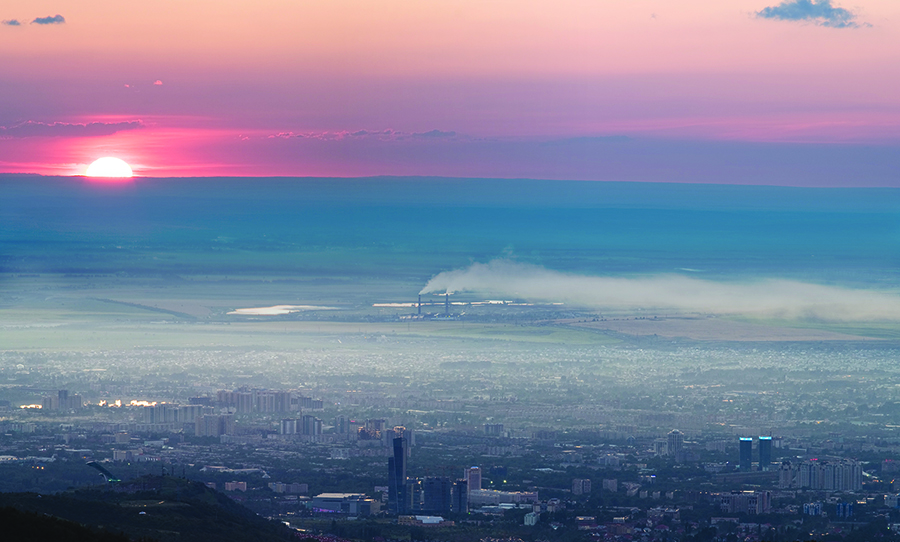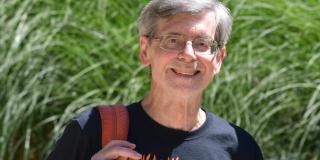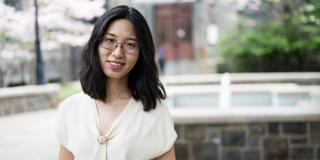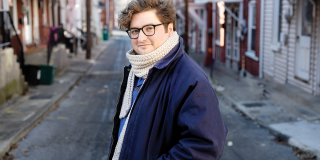Students develop an app to improve health of residents in Kazakhstan
Almaty, the largest city in Kazakhstan, shares an unlikely trait with Los Angeles—smog.
Despite being a major commercial and cultural center, Almaty experiences extremely poor air quality due to coal-fired power plant emissions and vehicle exhaust. Its location—much like LA’s—is surrounded by mountains, creating inversions of atmosphere, which keep air down and trap pollution in a geographic “bowl.” This poor air quality, combined with low investment in pollution-reducing technology, is likely to significantly impact the health of a growing population.
Economics major Hannah Moss ’23, environmental engineering and environmental science major Menglin Jiang ’22 and behavioral neuroscience student Katherine Miller ’24 are partnering with the NGO AIRVISION to use a mobile application that the students are developing to increase awareness of air quality and help Almaty residents breathe better.
Under the guidance of Dinissa Duvonova, associate professor of international relations, the team is also creating and analyzing demographic surveys. This app provides air pollution data and precautions for residents. One part of the app stimulates health choices, Jiang notes.
“Our app will help make health a habit,” says Moss. “For example, on a low-pollution day, the user receives a recommendation on transportation—better to bike than drive.”
Miller notes that a gamification feature may be added to the app for user engagement and awareness.
“We want to inform residents about air quality and that it leads to conditions like asthma and other respiratory diseases,” says Moss.
Educational campaigns and social media advertisements will be developed to popularize the app.
The team says that it makes sense for Almaty’s government agencies to make healthy quality-of-life decisions for the city’s residents.
“In order to be economically sustainable and to have an effective, productive workforce, you want people to be in a healthy environment,” says Miller.
The local government is aware of the air-quality issue and has invested in electric busses and bikes. There are plans to transition power plants from coal to natural gas, but solutions need to be more impactful. Lung cancer, chronic obstructive pulmonary disease and other respiratory conditions are common. It’s not just lungs that concern Moss, Miller and Jiang. Pollution also affects cognition, and ozone exposure can cause delays later in life.
“Polluted air gets to you—it gets you down,” says Moss.
The project was started through and is funded by Lehigh’s Office of Creative Inquiry, which fosters and stimulates independent student projects that bring about change.
“If it weren’t for Lehigh University resources, we couldn’t have done this,” says Moss. “We meet on Tuesdays for three hours. It’s where we search for fellowships and develop our plans.”
Halted by the pandemic in 2021, the team hopes to travel to Almaty to conduct surveys and field work this coming summer.
“We’re taking the approach of knowledge first and then urging residents to act effectively,” Moss says. “We want them to invest in their health.”







